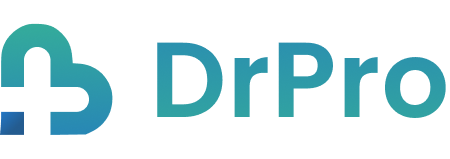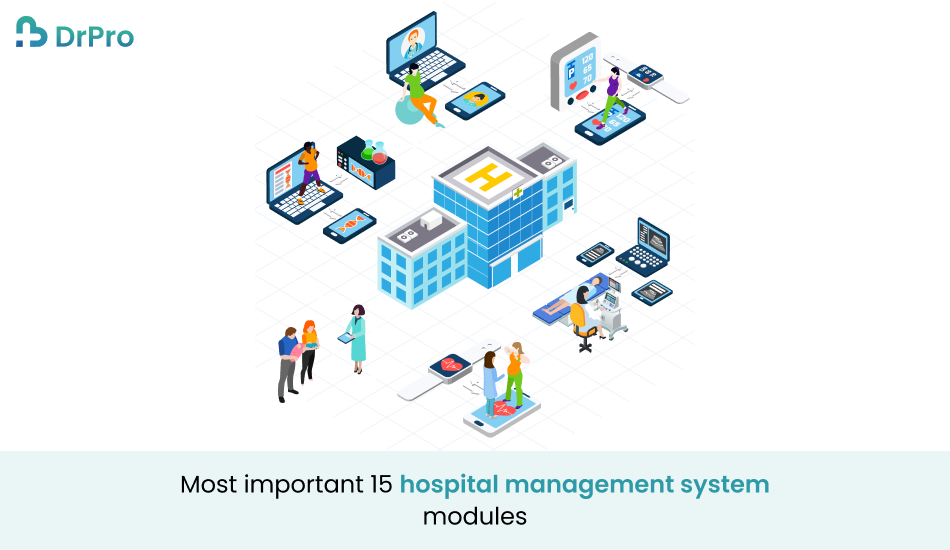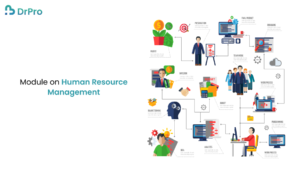The success and speed of facilities have become essential in the transforming healthcare system. Hospital management systems, or HMS, have become important equipment to enhance patient care, improve efficiency, and make the best use of the resources at hand. This type of system includes multiple functions and maintains a whole platform to manage the hospital management system modules and clinical processes.
An evolved method of management must be taken because of the details of healthcare processes, where multiple parts work to offer seamless services. Each module helps the general success of the institution by tackling specific areas of management of resources, patient care, and management of the hospital management system modules. This article analyzes the top 15 modules of HMS, including how it works, advantages for patients and healthcare providers, and roles.
Section for Patient Registrations
A hospital’s services can be available with the patient registration module. Important information about patients, such as billing information, medical history, and personal details, is saved in this module. Effective solutions for the registration of patients reduce the wait, provide the correct data collection, and improve patient treatment in general. It provides easy data flow with connections with other modules, improving the communication between the different departments.
As for the healthcare providers, this module is vital to creating the full patient picture. It plays an important role in admission and also eliminates many duplications, especially in the collection and flow of patient information across the departments. These modules also provide an avenue to enhance communication between the various departments to enhance patient flow into their respective health care path.
Schedule of Appointments Module
One of the most important facets of patient care is keeping appointments. Appointment scheduling, rescheduling, and cancellation become easy with the support of this section of the site. It avoids the chance of scheduling or inactivity of resources by helping doctors and other healthcare providers handle their appointments.
Reminders are another aspect of advanced systems that help reduce the number of missed appointments and improve the success rate of helpful services.
Another interesting feature of this particular module is the notice system whereby the system will remind the patients of their next appointment. This helps minimize the number of no-shows and effectively manages the schedule among the practitioners in the DrPro‘s hospital management system modules.
This module provides information about the availability of doctors in real-time contributes to the reduction of patients’ wait time and has a positive impact on patient satisfaction.
Module for Electronic Medical Records
The EMR modules are important for the delivery of current healthcare. It includes detailed patient medical records that involve outcomes of tests, treatment history, treatment plans, and results.
EMRs improve the usual level of care by providing healthcare providers immediate access to patient data, allowing decision-making based on It also promotes effective communication as well as continuity of care among different healthcare professionals.
Furthermore, EMRs also enhance the cooperation of different caregivers. When interfaced with other systems like laboratory information or radiology systems, the EMR System makes sure that any important information on a patient is always updated and readily retrievable. This module also decreases the chances of mistakes, enhances the safety of patients, and meets legal requirements that include HIPAA.
Lab Information System Module
The process of placing assessments, tracking examples, and reporting results are each performed with the Laboratory Information System module. It ensures without mistakes and efficient examinations, it speeds up the process of diagnosis and therapy. In connecting with the EMR section, professionals can see test results right away, improving the speed and accuracy of medical activities.
When connected to the EMR module, LIS allows clinicians to view the results of the tests performed, facilitating ‘real-time’ decision-making at a substantially faster rate. This module also minimizes the possibility of some mistakes in laboratory activities and brings about efficient reporting from the laboratory to other departments in the hospital management system modules. In conclusion, the LIS optimizes diagnostic precision, optimizes patient care, and optimizes the use of a laboratory’s resources.
Module of the Radiology Information System
The Radiology Information System module handles the radiology department process. Using processes, includes scheduling, reporting, following radiological images, and registration of patients.
The fast maintenance and recovery of images made possible through the Image Saving and Communications Network Connect improves diagnosis. This section suggests that radiology services are available and that healthcare providers can get the used data.
The RIS module enables the radiologists to access the imaging data hence enhancing the time and accuracy in making the diagnoses. This module also helps in enhancing interaction with other departments since images and reports are produced and readily accessible in real time.
Reporting capabilities of the RIS include the analysis of the radiology department’s work schedule to minimize the waiting time for patients and hence increase their satisfaction.
Module for Pharmacy Management
The pharmacy management module is charged with handling medical device supplies, sales, and billing. It ensures that medicines get around successfully and that stock levels stay the same. Benefits patient security and the search for different treatments and skin allergies. Mostly because technology improves mistakes made by human interest and the quality of medical facilities.
This module also involves bills and insurance claims for the supply of medications and makes the pharmacy’s operation processes clear. Through the processes captured in the pharmacy management module, many of the procedures are implemented in the management of medication and this eliminates the possibility of human interference.
Module for Invoicing and Billing
The medical facility’s billing and process module helps each employee with things every day. A software-based billing process guarantees every service provided is properly noted and maintained to date.
This module is used to manage patient billing, insurance claims, and payment tracking. It provides payment on time, improves the management of revenue cycles to avoid human mistakes, and improves the standard of billing.
This module can be said to play a very important role in the hospital management system modules of the revenue cycle. The points made are that it can limit errors that are caused by humans, it can facilitate on-time payments, and offer an accurate financial report to the administrators.
By integrating multiple systems like the patient registration and EMR systems with billing, the efficiency of the processes is raised and the result is an enhancement of the general operating finances.
Hospital staff management is a hard thing that the HRM module makes easy. Payroll, attendance, employee records, and performance reviews are all handled with this module. It makes sure that the number of employees in the hospital management system modules is suitable and that employees operate properly. This module helps worker management productivity in general and helps in labor regulation in line with automated hiring processes.
The other functions performed by the HRM module include recruitment, dipping into the employee rewards and appraisal system, and dealing with numerous legal requirements. With the core data of workforce productivity being offered in this module in real-time, it assists in enhancing workforce management. It also allows the hospital to be in a position to address staffing demands, thus minimizing operation constraints.
Module for Inventory Management
The hospital management system modules supply transportation and storage spaces. Purchases are managed due to the inventory management module. It means that essentials like supplies, treatments, and healthcare equipment are accessible to anyone.
This module maintains how the stock, manages relationships with suppliers, and looks at future needs. Effective management of supplies minimizes loss and avoids shortages of products, so the healthcare institution performs as planned.
Inventory management can therefore be said to be the process that seeks to optimize the usage of resources in an organization by eliminating wastage of resources and cost. This particular module also links to other systems like pharmacy and its financial management system to give a comprehensive utilization of the hospital management system module resources.
This specific module makes it possible for the hospital management system modules to continue providing care to the needs of its patients notably through proper management of its inventory.
The module on Financial Management
The future of medical facilities requires effective financial management. Accounting and Finance, reporting on finances, and budgeting are all discussed in this module. Provides administrators with information on the hospital’s resources, enabling them to make better choices. It ensures that all investments are successfully recorded and communicated for talking with other parts, such as the management of inventory and billing.
hospital management system modules also feeds from and to billing, inventory, and the human resource management systems for a FEMALE hospital’s overall financial outlook. Through the automation of financial processing in this module, chances of errors are eliminated and the quality of financial information is as current as possible.
This in turn assists the hospital management system module managers to plan appropriately on the required resources and other investments to make in the future.
Module for Ward Management
The ward management module is responsible for handling the distribution and application of medical beds. So that successful bed hospital management system modules maintain records of patient appointments, transfers, and discharges. Improved usage rates, less of a wait for clients, and improved customer service all are made possible with this module. More useful resource management and planning are made possible with real-time data on beds in use that are delivered.
By providing timely data regarding the availability of beds this module proves to be useful in decreasing the patient waiting time and increasing the hospital management system modules productivity.
It is also linked to the patient registration and the electronic medical record modules to provide updated information about the patients. In the way of optimizing bed management, this module increases the chances for positive patient outcomes and greater satisfaction.
Module for Operation Theater Management
The Operation Theater Hospital Management System modules call for proper organization and planning. Treatment scheduling, surgical instrument tracking, and surgical team management are all managed with this module. It sure that the processes move successfully and that the resources needed are available. With the technology that includes multiple steps, treatments can be done more effectively and with fewer mistakes.
This module also captures the patients’ outcomes and the surgical reports so that information is ready to be used during follow-ups. This module decreases the possibility of schedule disruptions, which is important for patient safety and knowing that surgical teams can accomplish their work as planned.
Module for E-health
The online medical care part supports online communication between patients and medical professionals. This allows patients to get healthcare from the comfort of their homes, without the need for hospital management system modules travel.
This module gives additional push required to avail the healthcare services, especially to the area which is still unrest of the healthcare services. It also decreases the burden on current healthcare facility infrastructure as patients can be treated without necessarily having to attend the facility. Such elements as the e-health module are becoming more relevant in the existing model of modern healthcare, especially given the progress in the sphere of digitalization.
Module for Feedback Management
Feedback from patients is required to improve the standard of care. This module helps hospitals identify areas for development by recording client issues and opinions. It helps to make sure that patient issues are immediately focused on and maintains records of the way complaints are solved. This module improves the level of healthcare overall and improves the satisfaction of patients to encourage a system of constant improvement.
Module for Analytics and Reporting
The Important information on hospital management system module operations can be found in the data collection and analytics module. This helps administrators to make informed decisions with reports of clinical, financial, and executive values. Resource optimization, demand forecasting, and trending are made available with advanced analytics technologies. In terms of results improvement and planning for the future, this section is important.
Conclusion
hospital management system modules, which offer modules addressing every part of treatment, are vital for modern healthcare. Every module—from financial management to patient registration—contributes actively to improving efficiency, improving patient requirements, and using the best of the resources at hand. Healthcare providers can achieve a high level of teamwork, improve the amount of paperwork, and deliver better medical leads with the integration of these modules. These systems will improve in ability as technology grows, completely changing the area of healthcare management.
ProjectTree and DrPro’s partnership brings a new level of synergy, combining advanced project management tools with innovative healthcare solutions.
FAQs
Q1. What is a hospital management system modules (HMS)?
An HMS is a software platform that integrates various hospital management system modules into a single system, enhancing patient care, improving efficiency, and optimizing resource utilization. It includes modules for patient registration, billing, EMR, inventory, and more.
Q2. Why is the EMR module important?
The Electronic Medical Records (EMR) module stores comprehensive patient data such as medical history, test results, and treatment plans. It ensures quick access to information, improving decision-making, patient safety, and care coordination.
Q3. How does the appointment scheduling module help the hospital management system modules?
This module streamlines the process of booking, rescheduling, and canceling appointments, reducing patient wait times, preventing scheduling conflicts, and increasing resource utilization.
Q4. What role does the pharmacy management module play?
The pharmacy management module tracks medication inventory, ensures timely replenishment, and integrates with the EMR to ensure accurate prescriptions, improving patient safety and preventing drug interactions.
Q5. How does the feedback management module improve healthcare services?
This module captures patient feedback on their healthcare experience, helping hospitals identify areas for improvement, address concerns quickly, and foster a culture of continuous improvement in care delivery.



